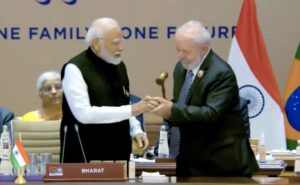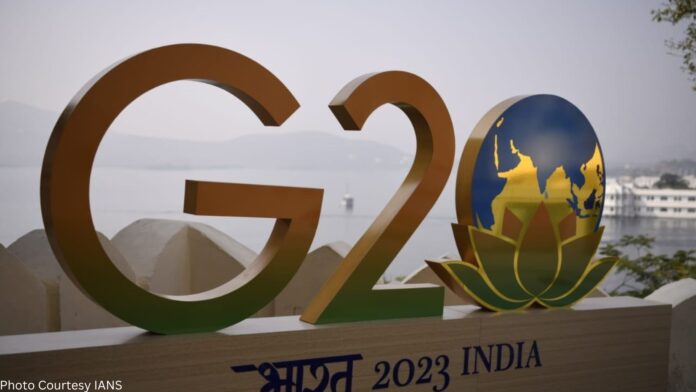In order to attend the India-Brazil-South Africa (IBSA) ministerial on Friday, external affairs minister S Jai Shankar entered a meeting room on the fourth floor of the Lotte Palace Hotel in New York. He then gave his counterparts an explanation of why he had just arrived in the city . Jai Shankar informed them about the special session of the parliament and the recent passage of a bill in India allocating one-third of the seats in the national legislature and state legislatures to women. After hearing him, South Africa’s minister of international relations and cooperation, Naledi Pander, praised Jai Shankar for what she called India’s “progressive step” and expressed her admiration for him. Over a dozen representatives from the three nations were in the small room, and Pander led a round of applause for India.
Jai Shankar informed them about the special session of the parliament and the recent passage of a bill in India allocating one-third of the seats in the national legislature and state legislatures to women. After hearing him, South Africa’s minister of international relations and cooperation, Naledi Pander, praised Jai Shankar for what she called India’s “progressive step” and expressed her admiration for him. Over a dozen representatives from the three nations were in the small room, and Pander led a round of applause for India.
The success of the G20 summit held in India while it held the chairmanship of the G20 was a talking point on the other end of the spectrum from the women’s reservation bill, which also came up in Jai Shankar’s chat with the Australian foreign minister.
Tariq Ahmad, the UK’s minister of state for South Asia, welcomed Jai Shankar into the Kennedy Room of the same hotel and thanked India for hosting the G20. In response, the Indian minister thanked everyone in the group for showing some willingness to contribute and described the entire process as “an education.”
Or perhaps Abdullatif bin Rashid , the foreign minister of Bahrain, brought up the G20 when he first spoke to Jai Shankar during their private meeting there. “Well done,” said the Bahraini minister. Then he praised the trade route between India, the Middle East, and Europe.
Even if debates around Canada’s accusations against India have dominated the headlines and are undoubtedly a hot topic in New York’s diplomatic community, India’s reputation is also shaped by other issues. Delhi’s tale has gained traction across a range of progressive initiatives to improve women’s participation and multilateralism.

































